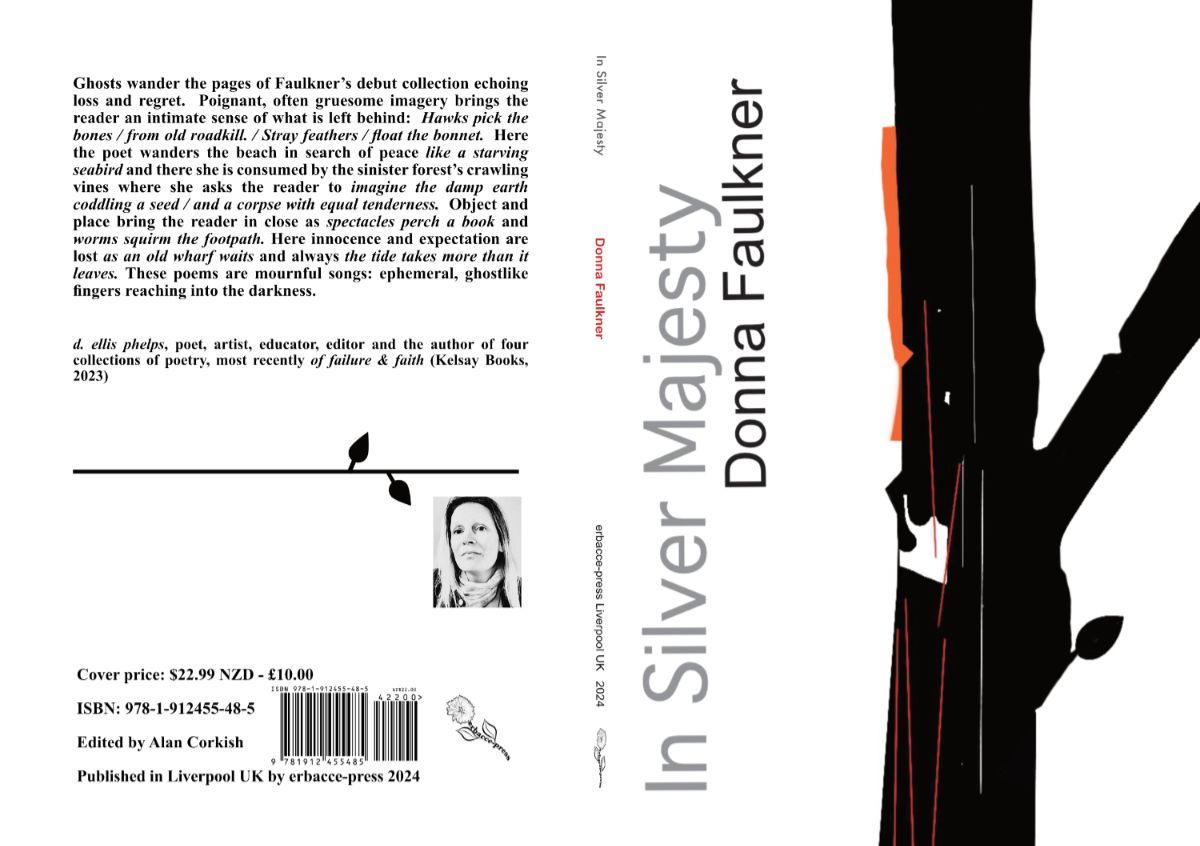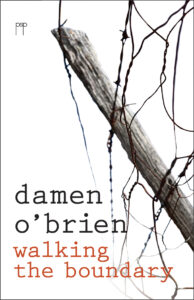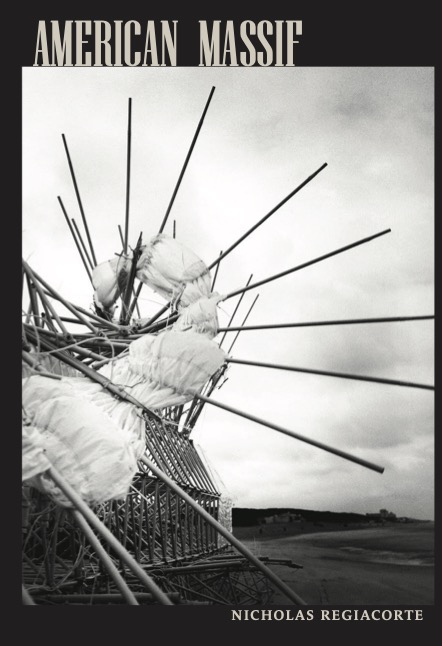 Skeletons, dusty books and stale bodies exist seamlessly alongside a newborn swimming in safe waters, and the bending of dandelions that don’t break. All imprinted firmly in Faulkner’s words, they peel back the cover on her own aches and elations about this experience of being human.
Skeletons, dusty books and stale bodies exist seamlessly alongside a newborn swimming in safe waters, and the bending of dandelions that don’t break. All imprinted firmly in Faulkner’s words, they peel back the cover on her own aches and elations about this experience of being human.
A review of Love Prodigal by Traci Brimhall
 As is evident in her line about her mother telling her through her tears that she loves what her daughter’s done with her hair, Brimhall has a delightfully sly sense of humor. It’s on display in poems like “Admissions Essay” (“I could have been valedictorian if the metrics / were ardor and potential for transformation”), “Ode to Oxytocin at a Distance,” “I Would Do Anything for Love but I Won’t” (“cook lobster.
As is evident in her line about her mother telling her through her tears that she loves what her daughter’s done with her hair, Brimhall has a delightfully sly sense of humor. It’s on display in poems like “Admissions Essay” (“I could have been valedictorian if the metrics / were ardor and potential for transformation”), “Ode to Oxytocin at a Distance,” “I Would Do Anything for Love but I Won’t” (“cook lobster.
A review of The Natural World Somersaults by Shaine Melrose
 Melrose has a strong and distinct voice which stands out, with a language that is fresh, with a unique perspective. Her poems often carry multiple layers of meaning. On the surface the poems recount childhood memories and family stories, but deep reading reveals themes of identity, gender issues, sexual politics, and existential questions.
Melrose has a strong and distinct voice which stands out, with a language that is fresh, with a unique perspective. Her poems often carry multiple layers of meaning. On the surface the poems recount childhood memories and family stories, but deep reading reveals themes of identity, gender issues, sexual politics, and existential questions.
A review of Seeing through the Smoke by Peter Grinspoon, MD
 Writing in a conversational and engaging style, Peter couples solid science with personal anecdotes, and tempers cold hard facts with his informed opinions. Bibliographic endnotes document the text, yet scholarly research rarely impedes the flow of the narrative. While credentialed as an MD, Grinspoon is no stuffy pedantic academic. As an undergrad lit major and grad student in philosophy, this Medical Doctor taps into his creative inner writer.
Writing in a conversational and engaging style, Peter couples solid science with personal anecdotes, and tempers cold hard facts with his informed opinions. Bibliographic endnotes document the text, yet scholarly research rarely impedes the flow of the narrative. While credentialed as an MD, Grinspoon is no stuffy pedantic academic. As an undergrad lit major and grad student in philosophy, this Medical Doctor taps into his creative inner writer.
A review of Walking the Boundary by Damen O’Brien
 A majority of the poems in Walking the Boundary are award winners, and if you follow these awards, as I do, the poems will be familiar. As the title suggests, these are poems about liminal spaces and edges between worlds, timeframes, states of being, genres, genders, parent and child, and between the human and any number of places, creatures, emotions, or landscapes.
A majority of the poems in Walking the Boundary are award winners, and if you follow these awards, as I do, the poems will be familiar. As the title suggests, these are poems about liminal spaces and edges between worlds, timeframes, states of being, genres, genders, parent and child, and between the human and any number of places, creatures, emotions, or landscapes.
Time-Traveling Poet: A Review of American Massif by Nicholas Regiacorte
 At a time when the focus on identities has become so crucial, when advocacy and education on the state of the world are so vital, Regiacorte’s work is more consequential than ever. Both viscerally human and uncannily inhuman, American Massif is an illuminating and clever collection of poetry for the ages.
At a time when the focus on identities has become so crucial, when advocacy and education on the state of the world are so vital, Regiacorte’s work is more consequential than ever. Both viscerally human and uncannily inhuman, American Massif is an illuminating and clever collection of poetry for the ages.
A review of Tremor by Sonya Voumard
 Tremor has many elements of a quest narrative. She recounts the many stages of her search to reach an acceptance of her ‘movement disorder’ by enduring social embarrassments, often feeling professionally vulnerable and overcoming her fears of being judged by others. Miraculously, Voumard’s good humour, dignity and empathy for others never waver, which results in a moving and thought-provoking memoir.
Tremor has many elements of a quest narrative. She recounts the many stages of her search to reach an acceptance of her ‘movement disorder’ by enduring social embarrassments, often feeling professionally vulnerable and overcoming her fears of being judged by others. Miraculously, Voumard’s good humour, dignity and empathy for others never waver, which results in a moving and thought-provoking memoir.
A review of When the Night Comes Falling by Howard Blum
 On one level, this is a sensationalistic book—in the acknowledgments, Blum exults in having gotten a screen deal—yet it is also a primer for penological, forensic, and judicial personnel seeking to refine their practices and steer clear of the pitfalls that drew out the efforts to nab a mass murderer, adding insult to injury for the victims’ families.
On one level, this is a sensationalistic book—in the acknowledgments, Blum exults in having gotten a screen deal—yet it is also a primer for penological, forensic, and judicial personnel seeking to refine their practices and steer clear of the pitfalls that drew out the efforts to nab a mass murderer, adding insult to injury for the victims’ families.
A review of The Burrow by Melanie Cheng
 Cheng’s writing is so lovely, and her insights so acute, that even the slow chapters remain engaging. Her figurative language is especially striking. When Amy drifts into sleep, “better days flash, in orange hues, behind her lids.” Pauline reflects that, when one is young, “death [is] something to be teased and taunted, unseen and remote, like a hibernating animal.”
Cheng’s writing is so lovely, and her insights so acute, that even the slow chapters remain engaging. Her figurative language is especially striking. When Amy drifts into sleep, “better days flash, in orange hues, behind her lids.” Pauline reflects that, when one is young, “death [is] something to be teased and taunted, unseen and remote, like a hibernating animal.”
A Review of The Golden Land by Elizabeth Shick
 Shick expertly pulls us into Yangon life and culture through glimpses of people, streets, food vendors, colorful gardens, and ancient temples. As Etta strolls through a working-class neighborhood, she notes how “makeshift shacks are stacked one upon the other like the slipper seashells I used to collect at the beach as a child,” then passes a man who “stands in front of his shack, his longyi hiked up to his groin as he lathers soap over his bare chest and legs.”
Shick expertly pulls us into Yangon life and culture through glimpses of people, streets, food vendors, colorful gardens, and ancient temples. As Etta strolls through a working-class neighborhood, she notes how “makeshift shacks are stacked one upon the other like the slipper seashells I used to collect at the beach as a child,” then passes a man who “stands in front of his shack, his longyi hiked up to his groin as he lathers soap over his bare chest and legs.”